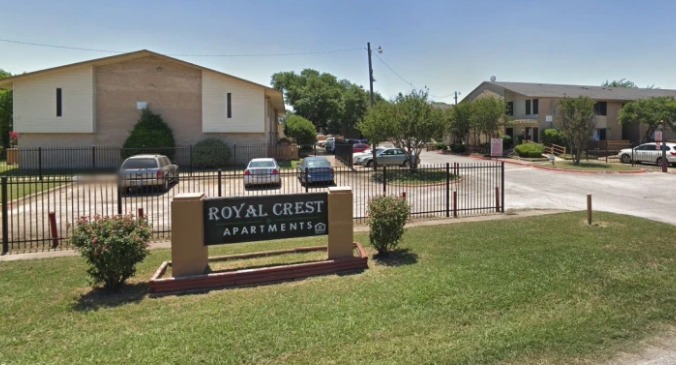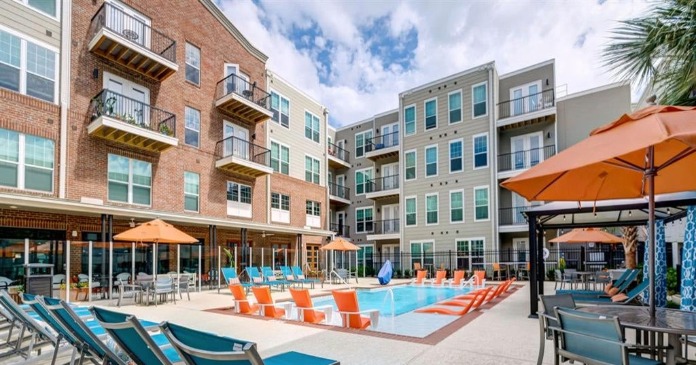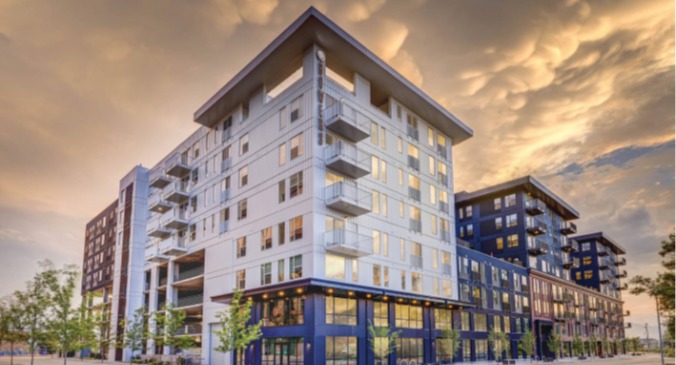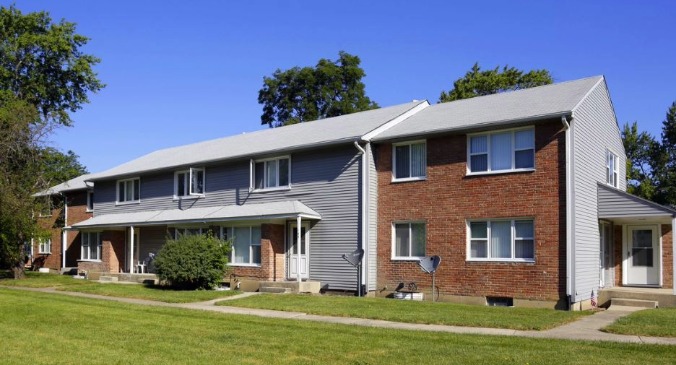No doubt. Mortgage companies became lax in their lending standards in past years. There is, however, an incredible upside few talk about, though it sure was a great thing awhile ago: A number of individuals who could have never bought a condominium, town home or single-family home, are now homeowners.
Let’s look at some quick facts. About 14 percent of subprime borrowers, the same individuals who, up until about 2003, were completely incapable of getting a home loan, are in some stage of default. As rates reset through 2009 and 2010, this number will continue to increase. And nationally, only 5 percent of the nation’s homeowners are in some state of foreclosure. This means that over 95 percent are paying their mortgage on time. Is this a crisis? Really?
It seems more like a correction.
We already have the Federal Reserve dropping interest rates so low (granted, it is stuck between a rock and a hard place) that inflation is on the rise, and higher gas and food prices make that mortgage even more unaffordable. But at some point, America has to get back to reality.
Congress is creating government handouts in the form of taxpayer rebate checks, but only to those who paid little in taxes, earned little in income or otherwise paid nothing to the government. Now, we have Paulson and others representing this great nation, wanting to take it to another level with Congress passing bills that give limitless capability to the Treasury Department to fix the Fannie and Freddie problem.
At the most, the government may need to act as a backstop, ensuring the public that Fannie and Freddie will not go bankrupt if only for the sake of keeping paranoia levels at a minimum and keeping the housing market growing. This needs to be done carefully and with great skill, not mass bailouts.
Many in Congress fret over a 2 percent decline in price or an 18 percent decline in new housing starts mistaking this as the road to recovery. Price declines mean that while more homeowners will be under water (owing more than the market value of their homes), more people will be interested and capable of buying due to increased affordability. In turn, demand will be generated and eventually eat up that ten months of outstanding inventory.
Fannie and Freddie touch about 70 percent of mortgages in the U.S., and they back or fund about half. But this is only part of the picture. Here is what Congress wants to do, and why it will damage our economy.
Let the government buy equity in Fannie and Freddie
These are two formerly government-run organizations turned quasi- public organizations that until July of 2008 were still waiting on final approval to sell shares in the open market. Miraculously, after their July reports, they were quickly given approval to sell shares.
However, by selling more shares to raise funds and help buy more loans and back more conforming mortgages, they are doing two things: 1. diluting the value of existing shares and hurting shareholders, and, 2. asking U.S. Taxpayers to buy shares of stock that even the riskiest of investors might be better served to pass on. There is no doubt that Fannie and Freddie are in trouble. They hold a lot of subprime and foreclosure-bound mortgages that will be valued at pennies on the dollar in the next 24 months. Yet, we cannot legislate our way out of this.
Loan Fannie and Freddie money just like we do other banks. These organizations are no longer government entities. Why are they entitled to that which not even small business owners, which provide over half of the jobs in America, aren’t offered? While small business owners beg for $10,000 at their local bank, backed by the Small Business Administration (SBA), we are going to open up Fed Funds to the tune of billions of dollars to public companies?
Let Fannie and Freddie figure it out. What happens if they open the purse strings? The money, currently being printed with bogus ink on valueless paper, is going to devalue (again) and these organizations will continue to lend without making sure the debt is secure.
Homeowner bailout
This sounds like a great socialist thing to do and I am sure the Euros are all over the idea, but if we take a closer look at what this does, it has no upside other than to temporarily keep those who will undoubtedly be in foreclosure, or worse, bankruptcy, in their homes awhile longer. This will create a never-stable stock market with investors worried that today will be the day it crashes Why not let it fall and rebuild? That is far better than the anxiety it will create in the markets over the long term.
The bailout is intended to help lenders help people by modifying their loans to reduce their principle balance in such a way that the homeowner establishes equity, but it only applies to certain homeowners, of which category we aren’t sure yet. This is known as loan modification or principle reduction, which is already occurring by most banks without the government.
If the government estimates 500,000 homes will be saved as a result, history dictates it won’t be nearly that many. Even if it were, guess who is funding that? Lenders and taxpayers — and mortgage holders that are dutifully paying their mortgages on time and living up to their obligations.
Either scenario is undesirable. Using taxpayer dollars means that those paying their mortgages on time will be penalized by using the tax revenue they generate to the government for equitable allocation, instead to subsidize those who do not uphold the basic sanctity of a contract.
If lenders pay, who ultimately pays: home-buyers. The one in the same who will drive up demand and subsequently set a new market equilibrium.
Is it really in the best interest for the U.S. economy to make it more expensive to buy a house? Increasing price reduces demand.
Demand is low enough already. Let’s find ways to lower supply by increasing demand and moving homes off of the market by offering tax incentives to home buyers — that way only those helping will get the benefit and those who are negatively impacting the system, won’t. By bailing out those hurting the system, we are rewarding the bad and penalizing the good. By offering tax credits to people who buy up inventory, we are rewarding the good and ignoring the bad. At least Pavlov would approve.
Federal licensing
Congress is encouraging a nationwide registration and licensing of loan originators. It also moves licensing and law enactment to the Housing and Urban Development Department, meaning that the government will run yet another entity.
How can this be good? Considering the recent history with HUD, do we want to trust them with homes? States already administer licensing procedures and this is quite enough. Those who are offering shady loans are being arrested, questioned by the FBI and put out of business.
Redevelopment of foreclosures
Beyond the atrocious $4 billion that this particular component will cost, this is a piece of legislation to encourage local cities and counties to buy foreclosed properties, rehab them and sell them on the cheap. This sounds fine on the surface, except that it is government-subsidized. Once again in connecting the dots, the individual who is actually current on their mortgage is indirectly subsidize an individual, say, to buy a home in Detroit that the city can take over and sell for $20,000 or other unrealistic number. Why not incentivize individuals in the free market through tax credits to buy foreclosed properties, and offer incentives to rent them to people who were removed from their homes due to foreclosure? At least then, only those helping the problem benefit. If you can buy a home in six months from the government for $20,000, why would you buy a bank-owned, foreclosed property for $100,000? This is not a way to reduce inventory. It is yet another reason for individuals to procrastinate on buying homes. Congress needs to stop listening to the lobby organization known as the National Association of Realtors, and start listening to their economics professors from their econ class 50 years ago.
Upping the FHA limit, again
The conforming limit for home loan funding would be set to $625,000 or 115 percent of the nation’s median price. This means the government will insure more homes at above market value. 115 percent sounds a lot like the maximum loan-to-value cap on negative amortization mortgages. Now the government is getting into the business of neg am mortgages? Who would have thought those dicey lenders offering bad loans would become our own government.
There is an underlying principle in most of this legislation that banks want to own homes. Banks do not want homes on their balance sheets. Banks do not want to be sued by cities for not mowing the lawns and letting mosquitoes fester. Banks do not want to pay the average $50,000 it costs them to take back a house. Banks are already working with borrowers who have shown, through late payments, that they cannot afford their houses.
The issue remains mostly in the second lien holder position. If we want to understand why banks are unable to modify some loans, it is because in many cases the bank that has the second lien position (either as a home equity line of credit, HELOC, or a second mortgage) and does not want to forfeit what is justly owed to them. After all, we did sign loan documents as homeowners, right? Congress, of course, wants to force them. Force people to not collect on debts owed to them. Isn’t that Un-American?
Any time Congress adds unnecessary legislation to organizations, public or private, it hurts many people. It hurts the shareholders of those companies who are penalized with lower stock prices because of the rising costs of doing business. Heavy reporting to the government is quite costly. Ask companies affected by Sarbanes Oxley or HIPAA.
If left alone, the free market will auto correct; it will adjust supply and demand to a new market equilibrium. We may not like where it falls, but artificially propping up prices simple means dragging out the problem. Why not get the painful process over quickly instead of anesthetizing the troubled homeowner for a few more years until their condition has worsened?
We are given the ability to succeed. We are also given the ability to fail. Many of us would argue we learn more from our failures than our successes. Let the markets do their thing. Bad banks will be weeded out naturally. Mortgage brokers will be priced and blacklisted out of the market, and homeowners will buy what they can afford. Normalcy will resume. Just give it time — and keep Congress focused on something it can’t screw up — like the color of pens they use to sign these crazy laws.
Author: Danielle Babb PhD
















